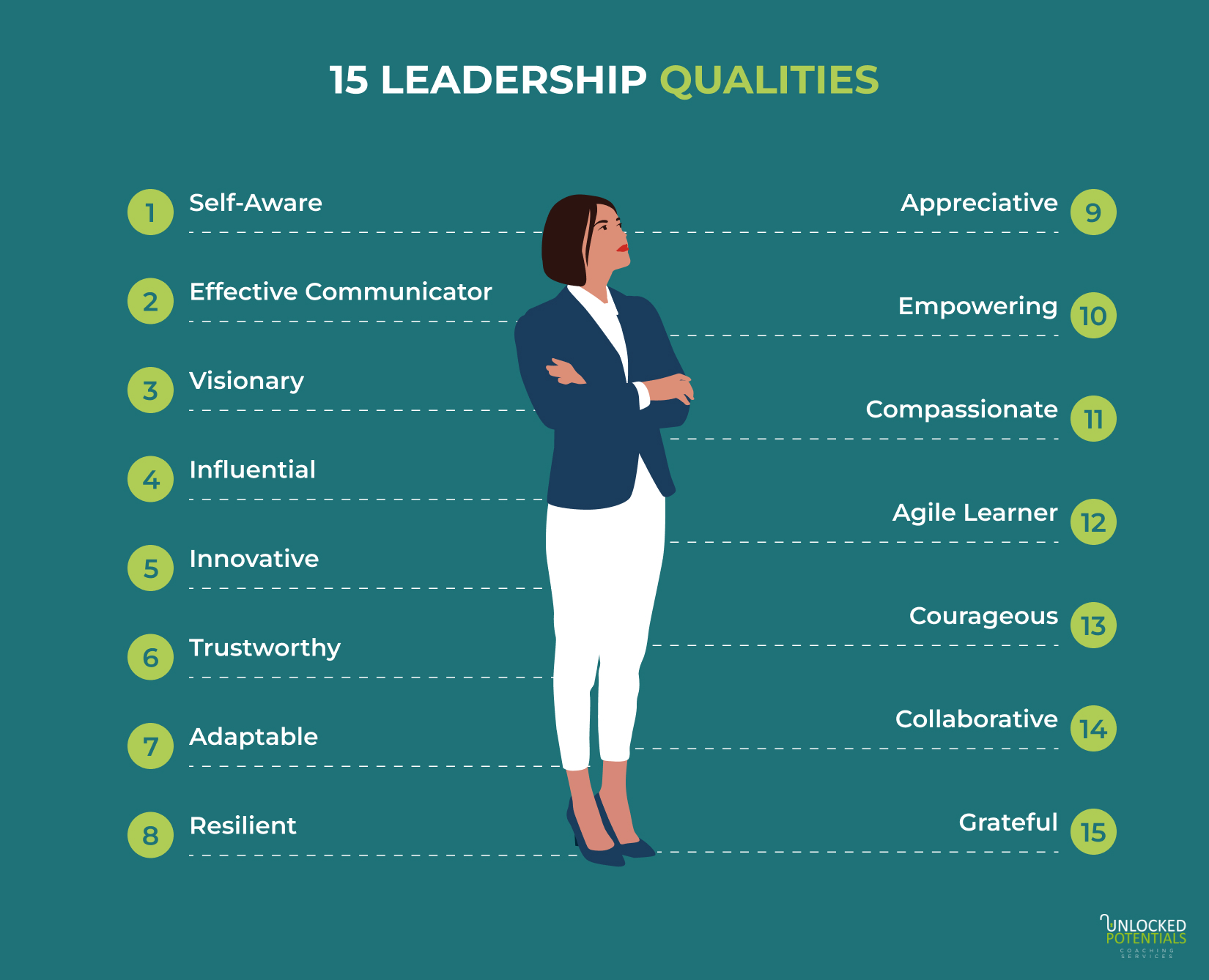How to Become a Good Leader: 15 Tips from a Leadership Coach

Leadership isn’t about a job title. It’s about impact. It’s the ability to inspire, support, and bring out the best in others. A good leader shapes team morale, productivity, and long-term success. You are not just making decisions. It’s more on building trust, fostering growth, and setting a standard others want to follow.
The strongest leaders aren’t the most experienced or the loudest. They’re willing to grow, adapt, and lead purposefully. You don’t need to have all the answers. You just need the mindset to keep learning. In this guide, I’ll share ten proven leadership tips to help you lead with confidence and clarity. No matter where you are in your journey, you can become a great leader.
1. Understand Your Leadership Style
Great leadership starts with self-awareness. Before you can effectively guide others, you must first understand yourself—your strengths, weaknesses, and how you naturally lead. Leadership is not a one-size-fits-all skill. Some leaders thrive on collaboration, while others take a more strategic, big-picture approach. The key is recognising what works for you and where you need to grow.
Pay attention to patterns in how you interact with others, make decisions, and respond under pressure. Tools like personality assessments, 360-degree feedback, or simply asking colleagues for honest insights can provide valuable perspectives.
Self-awareness is about recognising how your leadership style impacts those around you. When you truly understand yourself, you can lead with greater confidence, adaptability, and authenticity.
2. Develop Strong Communication Skills
Leadership is about building connections. If you can’t communicate clearly, you can’t inspire, guide, or earn trust. Strong leaders don’t just talk. They listen, understand, and respond in ways that make people feel valued.
Good communication starts with listening. Pay attention. Don’t just hear words—understand what’s being said. People respect leaders who listen without interrupting, who make them feel heard. Body language, tone, and expression matter just as much as words.
If your team seems disengaged, check how you’re speaking to them. The best leaders speak with clarity, warmth, and purpose. When you communicate well, people don’t just follow—you inspire them to believe in your vision.
3. Inspire Others with a Clear Vision
A strong vision gives people direction and purpose. Without it, teams feel lost, disengaged, and unsure of what they are working towards. Great leaders set goals and paint a clear picture of the future and make others believe in it.
Your vision should be more than words. It should be something people can see, feel, and connect with. Storytelling is a powerful way to bring your vision to life. Share why it matters, what success looks like, and how each person plays a role in achieving it.
If your message lacks clarity or passion, your team won’t follow. When you lead with a clear vision, you give them something to believe in.
4. Lead by Example
People don’t follow words. They follow actions. Leadership isn’t about telling others what to do. It’s about showing them through your own behaviour. If you want trust, be honest. If you want hard work, show commitment. Integrity and authenticity are the foundation of real leadership.
Your team watches how you handle challenges, setbacks, and success. If you take responsibility for mistakes, they will too. If you stay calm under pressure, they will follow your lead.
Every decision, every interaction, every choice sets the tone. Lead in a way that makes people want to follow, not because they have to, but because they believe in you.
5. Encourage Creativity and Innovation
Creativity thrives in a safe environment. When people fear criticism or failure, they hold back ideas. Great leaders create spaces where new thinking is encouraged, mistakes are seen as learning opportunities, and every voice is valued.
Innovation happens when people feel safe to take risks. Encourage your team to experiment, challenge old ways, and share bold ideas. Recognise effort, not just success. When people see their contributions matter, they become more engaged and proactive.
Start by listening, asking questions, and showing appreciation for fresh perspectives. When you create an environment where creativity is welcomed, your team won’t just follow instructions. They’ll think, contribute, and grow with you.
6. Build Strong Relationships Through Trust and Respect
Trust is the foundation of strong leadership. Without it, teams become disengaged, communication breaks down, and productivity suffers. People don’t just follow leaders because of their position. They follow because they feel valued, understood, and respected.
Emotional intelligence is key to building trust. Pay attention to how you communicate, how you respond to feedback, and how you handle conflict.
A leader who listens, stays calm under pressure, and treats people with respect creates a team that is more open, motivated, and committed. Strong relationships take time, but small actions make a difference. Be transparent, keep your word, and show appreciation. When your team trusts you, they don’t just work for you. They work with you.
7. Stay Adaptable and Open to Learning
Leadership is about staying open, learning, and growing with every challenge. The best leaders don’t resist change. They embrace it and help others do the same.
Adaptability keeps you relevant and resilient. Teams look to their leaders in uncertain times, and how you respond sets the tone. Seek feedback, even when it’s uncomfortable. Learn from mistakes instead of fearing them. Stay curious about new ideas, industries, and perspectives.
A rigid leader limits growth, but an adaptable one inspires confidence. Think of leaders who have thrived through change—those who listen, evolve, and lead with flexibility. When you stay open to learning, you create a culture where everyone feels empowered to grow.
8. Keep a Positive Attitude, Even in Tough Times
A leader’s positive mindset shapes the team’s morale. If you lose confidence, so will they. Staying positive means facing them with resilience and hope.
Challenges and failures are part of leadership. How you respond makes all the difference. A strong leader acknowledges setbacks but doesn’t let them define the future. They focus on solutions, encourage the team, and remind them of the bigger picture.
Positivity is about showing up every day with belief and determination. When you lead with confidence and hope, your team will follow.
9. Recognise and Reward Your Team
People perform better when they feel valued. Recognition builds trust, boosts morale, and strengthens commitment. Without it, motivation fades, and productivity suffers.
Appreciation should be clear and meaningful. A simple thank-you, a public acknowledgment, or personalised feedback can make a real difference. Be specific—let people know what they did well and why it mattered.
Many leaders focus only on results and overlook the effort behind them. When people see their hard work is noticed, they stay engaged and motivated. A strong leader makes recognition a habit, not an afterthought.
10. Empower Others and Delegate Effectively
Strong leaders trust their teams. Delegation is not about offloading tasks but about building confidence and developing skills. Micromanaging weakens trust, while empowerment strengthens it.
Delegating well means setting clear expectations, offering support, and stepping back. When people take ownership of their work, they grow and perform at a higher level.
Leaders like Satya Nadella at Microsoft have built strong organisations by giving teams the freedom to make decisions. Start small if letting go is difficult. Assign tasks, provide guidance, and let your team take responsibility. Empowered teams don’t just follow. They lead.
11. Show Compassion in Action
Compassion is not about feeling sorry when someone is struggling. As a leader, it’s about noticing when something is wrong and then doing something to help. This is what we mean by compassion in action.
People remember how their leaders made them feel during hard times. When your team sees that you not only care but also act on what they’ve shared, trust grows. They feel seen and supported. This fosters a stronger and more open team culture.
And compassion isn’t only for tough times. You can show it by noticing when someone is trying hard, or asking how their day is going. When you lead with care, people feel safe, and safe teams perform better.
So, don’t wait for big problems to show compassion. Lead with it every day in your actions.
12. Develop Learning Agility
Great leaders show agile leadership by staying open to learning, especially when they’re not sure what to do. This mindset is called learning agility, the ability to learn quickly and apply that learning in new or changing situations.
Let’s say you’re leading a project in a new area you don’t fully understand. Instead of pretending you know everything, you ask questions and stay curious. You learn as you go, and that’s a sign of strength, not weakness.
Learning agility also means being okay with making mistakes. When something doesn’t work, reflect on it, learn from it, and try again. It’s growing through experience, not needing to be perfect.
13. Have the Courage to Make Difficult Calls
A strong leader does not avoid tough decisions. You need to face problems directly. If someone on your team is underperforming, speak to them clearly and privately. If something is not working, change it. Waiting too long can damage progress and affect the whole team.
People respect leaders who are honest and firm. It shows that you care about the team’s success. When you address issues early, you prevent them from escalating. Avoiding action may seem more manageable, but it often leads to more stress later.
Courage means doing what is right, even when it is uncomfortable. It also means standing by your decisions and taking responsibility. You won’t always please everyone, but your consistency will build trust.
14. Prioritise Collaboration Over Control
Building a team that works well together is an important part of being a good leader. The first step is to ensure that everyone feels safe enough to share their thoughts and contribute to decision-making.
Controlling every little thing slows down progress. It takes longer to make choices and prevents other people from improving. People may stop sharing their thoughts if they believe no one will listen or value them.
A collaborative method helps people figure out how to solve problems better. Different perspectives help strengthen ideas. It also helps you and your team trust each other. People are more driven to their work and have more confidence when they know you trust them.
As a leader, you are not in charge of everything; your job is to help and guide. Allow your team to think, act, and get better. Everyone can now do their best work.
15. Practice Daily Gratitude
Being grateful is a simple habit that can change the way you lead. When you notice and acknowledge the efforts of others, it creates a positive and respectful team culture. People feel more valued when their work is seen and appreciated.
When people know their work is important, they are more driven to do it. It helps them believe you and keeps them motivated to do their best. It also makes your team like you more because they see that you care and appreciate their work.
Every day, make being grateful a habit. Find the good things. Let people know that you appreciate what they’re doing. When you lead with gratitude, your team is stronger and closer together.
Frequently Asked Questions
What leadership style works best in the UAE workplace?
The UAE workplace is diverse, with many cultures and nationalities. This means one leadership style doesn’t suit every situation. A flexible and respectful approach is most effective. Leaders who listen, stay open to different views, and lead by example are more successful here. It helps to balance between structure and empathy, making space for others to contribute.
How can I build leadership skills without a formal title?
Leadership is not limited to job titles. You can lead by being reliable, supporting others, and staying calm under pressure. These behaviours build respect and show that you’re ready for more responsibility, even if your job title hasn’t changed yet.
What are the most important leadership skills for professionals in the UAE today?
Based on recent surveys, key leadership skills in the UAE include communication, decision-making, adaptability, and team development. Employers also look for leaders who support innovation and build trust.
How can I grow into a leadership role in my current company?
Start by understanding what your company values in leaders. Then look for opportunities to take ownership of projects, mentor others, or enhance your team’s workflow. Ask for feedback and show that you’re open to learning.
- August 2025
- July 2025
- June 2025
- May 2025
- April 2025
- March 2025
- February 2025
- January 2025
- December 2024
- November 2024
- October 2024
- September 2024
- August 2024
- July 2024
- June 2024
- May 2024
- December 2023
- November 2023
- August 2023
- July 2023
- June 2023
- May 2023
- April 2023
- March 2023
- February 2023
- January 2023
- December 2022
- November 2022
- October 2022
- September 2022
- August 2022
- July 2022
- June 2022
- May 2022
- April 2022
- March 2022
- February 2022
- January 2022
- December 2021
- November 2021
- October 2021
- September 2021
- August 2021
- July 2021
- June 2021
- May 2021
- April 2021
- March 2020
- February 2020
- January 2020
- December 2019
- November 2019
- October 2019
- September 2019
- August 2019
- July 2019
- June 2019
- May 2019
- April 2019
- March 2019
- February 2019
- January 2019
- December 2018
- November 2018
- October 2018
- September 2018
- August 2018
- July 2015
- May 2014










